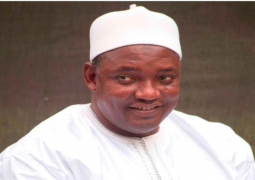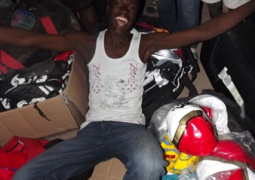The Director General of the West African Health Organization (WAHO) Dr. Placido Cardoso has delivered a statement ahead of WAHO Day slated for Friday 9th July 2010.
The theme for this year's celebration is "Promoting Traditional Medicine to Improve Access to Quality Health Care in the ECOWAS Region."
Dr. Cardoso stated that the health challenges of the region continues to increase, noting that the region has still not been spared the scourge of epidemics such as A (H1N1), Cholera and dengue fever. "Dengue fever has taken its toll on the people of Cape Verde affecting more than 20,000 people, and more than 150 confirmed cases of A (H1N1) influenza, have been reported in Ghana, Nigeria, Cape Verde and Cote d'Ivoire. The region has also experienced meningitis epidemics with over 56,000 reported cases in Nigeria and 13,000 in Niger," he said, adding that in addition, endemic diseases such as Malaria, HIV/AIDS and tuberculosis are still public health concerns.
He pointed out that despite the many interventions and initiatives that have been launched, maternal and neonatal mortality remains unacceptably high with little progress made towards achieving the Millennium Development Goals by 2015.
He said as part of the strategy to improve access to quality healthcare for all the peoples of the region, "we have chosen Tradition Medicine as the theme for this year's WAHO day celebrations." He stated that there are sound reasons for this choice. "With about 80% of the people in our region utilizing traditional medical services, we believe it is only proper that we renew our commitment to support its development to leave no room for charlatanism. For many millions of people in the ECOWAS region particularly rural dwellers, herbal medicines or traditional medicines and traditional practitioners are often the only source of health care," he added. He underscored the need for traditional medicine practitioners to be trained and regulated to enable them acquire the necessary skills and competencies to perform this ancient, culturally respected art of compassionate care and healing alongside the so called orthodox medical practice.
In the Gambia, he added, the Ministry of Health and Social Welfare has lined up series of programme for the day. "There will be launching of the day, which will be followed by a symposium, sensitisation on radio and TV, exhibition and a field day," he stated.





